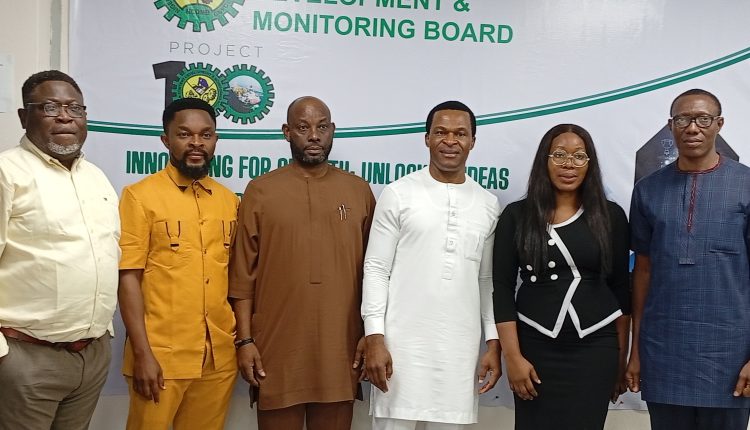As Nigeria turns to Compressed Natural Gas (CNG) as an alternative to traditional energy sources for the automobile, expert has advised the government to consider harnessing its potential with requirements such as policy support, investment, infrastructure upgrades, and enhanced safety measures.
The CEO GEORGID Consulting facilitator, Idotenyin Isaac stated this during the Project 100 initiative training programme in Lagos , organised by the federal Ministry of Petroleum Resources in collaboration with the Nigerian Content Development and Monitoring Board (NCDMB).
According to Isaac,” CNG’s affordability and efficiency are matched only by the urgency of addressing policy, safety, and investment gaps in Nigeria” .

He said the Project 100 is a laudable initiative of the government to diversify Nigeria’s economy and reduce dependence on multinational corporations, empowering 100 indigenous oil and gas service companies.
At the capacity building workshop held at the Canton Concourse Avenue Oniru Estate Victoria Island , the GEORGID consultant emphasised the importance of capacity building and access to funding for local players to compete favourably in the global oil and gas industry.
“Innovation and problem-solving are key to growth to compete globally, indigenous companies must have the right capacity and funding.”

NCDMB Coordinator, Abdul Malik Halilu explained that Project 100 seeks to grow local companies into major industry players, reducing multinational dominance.
“We offer financial and non-financial support, including single-digit interest loans and contract financing schemes through partnerships with the Bank of Industry and Nexim Bank,” he stated.
New opportunities
Participants praised the initiative, citing increased collaboration, improved safety, and exposure to new opportunities.
Represented by Manager Research and Development Njok Amarachi Jonathan, NCDMB emphasised the importance of partnerships and alliances in achieving industry growth. “Last year, we facilitated a visit to Singapore to explore opportunities for local companies to collaborate with international partners.”
With Project 100, NCDMB is paving the way for indigenous companies to become global players, driving Nigeria’s oil and gas industry toward sustainability and growth. As the nation seeks to diversify its economy, this initiative is critical to unlocking the potential of local businesses and creating a more competitive industry.
Caroline Ikpe, a participant, noted, “This training has opened my eyes to areas of collaboration with like-minded people. I’ve gained valuable insights into industry best practices and networking opportunities.”

Innovation & Technology
The CEO of Harbour Oil and Gas International Limited, Fregene Daniel
applauded the capacity-building program, saying it has “opened my eyes to more opportunities in the oil and gas service-providing industry. The training has equipped me with the knowledge to explore technology-driven solutions.”
To another chief executive, Henry Wilson the need for more collaborations across the board, qas very instructive “We appreciate NCDMB for giving us this opportunity. With implementation, we’ll compete globally.”
Uchenna Ukana of Hull Inspection Services Limited, praised Project 100 as “a good innovation in the industry, exposing beneficiaries to industry opportunities and making funds available.”
NCDMB’s Project 100 is part of the Nigerian government’s efforts to increase local content in the oil and gas sector. The initiative includes training, funding, and mentorship programs designed to equip indigenous companies with the skills and resources needed to compete globally.
Lateefah Ibrahim


Comments are closed.